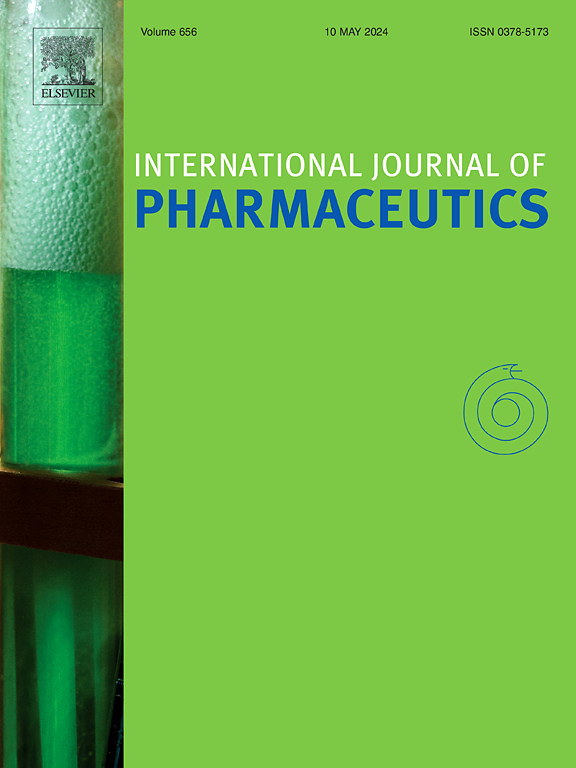Formulation screening of lyophilized mRNA-lipid nanoparticles
IF 5.3
2区 医学
Q1 PHARMACOLOGY & PHARMACY
引用次数: 0
Abstract
Lipid nanoparticles (LNPs) have demonstrated their therapeutic potential as safe and effective drug delivery systems for nucleic acids during the COVID-19 pandemic. However, one of the main challenges during technical CMC (Chemistry, Manufacturing, and Controls) development is their long-term stability at temperatures of 2–8 °C or higher, which may be improved by the removal of water by lyophilization. In this study, we identified lyo-/cryo-protectants for freeze-dried mRNA-LNP formulations beyond conventional excipients such as sucrose and trehalose as Tg-modifiers using polyA as a surrogate. Hydroxypropyl-beta-cyclodextrin, Kollidon® 12 PF (PVP), and dextran 40 kDa were tested in combinations to best stabilize the mRNA-LNPs during the lyophilization process as well as during storage for up to 6 months at 2–8 °C, 25 °C/60 % r.h., and 40 °C/75 % r.h.. We also tested the formulation principle including protectants in- and outside of the LNPs. Formulations were assessed for size, PDI, encapsulation efficiency, and properties related to the lyophilized dosage form. While 10 % (w/V) sucrose formulations successfully stabilized LNPs during the lyophilization process, they were not suitable for storage at temperatures beyond 2–8 °C. The most promising formulations for storage at higher temperatures were identified as 9 % (w/V) trehalose + 1 % (w/V) PVP with only a small increase in size over 6 months at 25 °C maintaining PDI and encapsulation efficiency. Results were verified with eGFP-mRNA-LNPs and tested in cell culture experiments. This study may serve as guidance for formulation scientists to further optimize freeze-dried mRNA-LNP formulations and eventually eliminate the cold chain for mRNA-LNP products.

求助全文
约1分钟内获得全文
求助全文
来源期刊
CiteScore
10.70
自引率
8.60%
发文量
951
审稿时长
72 days
期刊介绍:
The International Journal of Pharmaceutics is the third most cited journal in the "Pharmacy & Pharmacology" category out of 366 journals, being the true home for pharmaceutical scientists concerned with the physical, chemical and biological properties of devices and delivery systems for drugs, vaccines and biologicals, including their design, manufacture and evaluation. This includes evaluation of the properties of drugs, excipients such as surfactants and polymers and novel materials. The journal has special sections on pharmaceutical nanotechnology and personalized medicines, and publishes research papers, reviews, commentaries and letters to the editor as well as special issues.

 求助内容:
求助内容: 应助结果提醒方式:
应助结果提醒方式:


